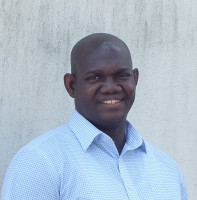Renewable Energy
Climate Change
Bioenergy, Hydrogen & Alternative Fuels
Global Warming
Greenhouse Gases Emissions
Climate Adaptation & Resilience
Post-Doctoral Fellowships
Ireland
2018.04.30
Waste-to-energy, a true assessment of the potential of bioenergy in Nigeria
Whether in response to climate change, or to tackle fossil fuel dependency and energy security, today’s energy landscape is set for a fundamental transformation. Although the entire world is concerned, the issue is even more critical in Sub-Saharan Africa, the most energy poor region of the world. Interestingly, and as Dr. Dunsin Arodudu points out, this « energy poverty is not (due to) a lack of energy resources, but (to) the lack of awareness of the potential of its energy resources ». Based on this analysis, the researcher from the Maynooth University, in Ireland, aims to assess the energy transition potentials of bioenergy options in Sub-Saharan Africa. More specifically, he is investigating the actual net energy gain that could be obtained from the abundant organic wastes and wastelands resources of Nigeria, and their potential to meet renewable energy and climate change mitigation targets.
«Waste lands and organic wastes are considered sustainable bioenergy options within energy transition discussions because they do not conflict with food availability, access and use, Dr. Arodudu explains. And also because they do not lead to biodiversity and ecosystem services loss due to land use change ». In Nigeria, where energy poverty is severe with respect to the size of the population, and where organic waste and waste land resources are abundant, waste-to-energy processes could indeed constitute a win-win solution for a sustainable future. The question that remains to be asked is : can they produce enough energy to meet Nigeria’s needs and ambitious Climate change objectives ? To avoid jumping to conclusions, Dr. Arodudu aims to make sure technologies such as anaerobic digestion – which uses microorganisms to produce fuels from biodegradable material –, or technologies that convert grass and woody biomass to energy, such as pyrolysis and torrefaction, can live up to expectations.
Identifying trade-offs and synergies in maximising the potentials of bioenergy options
« Most studies of this kind in Sub-Saharan Africa and anywhere else use gross energy indicators, the researcher points out. This is misleading because energy is needed to produce energy. The energy investments into the production of energy and its transmission to the end user are often neglected. This makes the applicability of such studies for policy and planning faulty as the results presented are usually an over-estimation of the actual potentials of bioenergy options and regions in focus ». Aside from net energy gain, the study will also take interest in other indicators, such as energy use efficiency, energy return on energy invested, net energy ratio and the net carbon savings. This bias will serve another major novelty : the adoption of a two-way sustainability analysis approach, an indicator-by-indicator analysis and a multi-indicator analysis. « The first one will be useful to identify trade-offs and synergies in maximising the bioenergy potentials of bioenergy options, explains the post-doctoral research fellow. The second will assess the overall sustainability and contributions of bioenergy options in meeting energy transition goals using stakeholder inputs ».
Faced with the threat of climate change, the need to take urgent action regarding the energy sector has become an absolute priority. To act fast, policy makers must have access to reliable studies, that clearly weigh the advantages and disadvantages of every option available. Putting garbage to good use is a promising avenue for Sub-saharan countries. By investigating the true potential of waste-to-energy processes in Nigeria, Dr. Dunsin Arodudu is right on target in that regard. Considering the country’s ambitious intended national contribution to the Paris Climate Change Mitigation Global Accord, the output of his research could soon come to fruition.

Dunsin
ARODUDU
Institution
Maynooth University
Country
Ireland
Nationality
Nigerian
Related articles
Climate Change
Finance, Investment & Risk Management
Societal Challenges
Climate Adaptation & Resilience
Insurance & Risk Management
Environmental Justice
Civil Society & Governance
AXA Project
Italy
AXA Research Lab on Climate Change, Risk and Justice
In response to three research questions: How can the private and financial sectors contribute to a just transition to a... Read more

Gianfranco
PELLEGRINO


